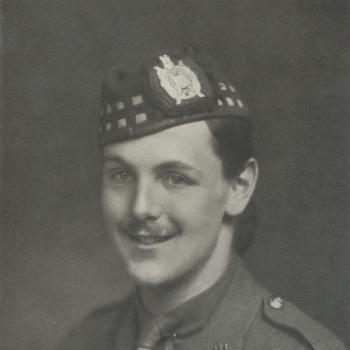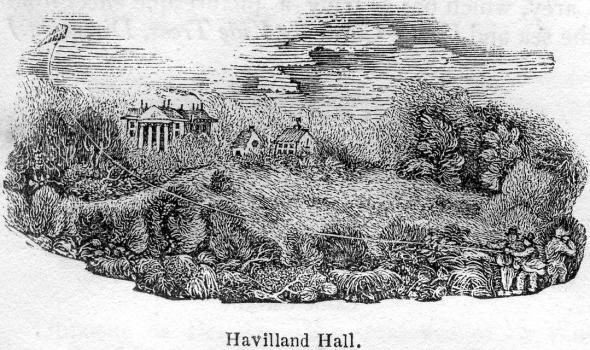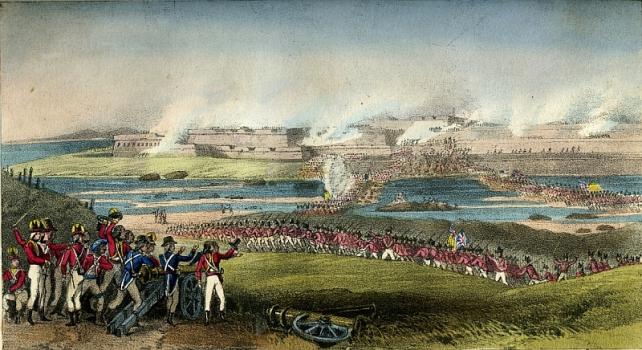From the Star. The Library has in its collection a biography of Captain Herries, A young Borderer: a memoir of Alexander Dobrée Young-Herries, Captain, The King's Own Scottish Borderers, by David Frew, published in 1928.
The details of De Havilland's court martial, resignation, and restoration in India. 'Lord Minto, in his general orders from Madras, respecting the late defection or quarrel, published a list of twenty-two officers who were to be tried by court martial, or optionally to resign the service; my name was among these, and therefore I now avail myself of this opportunity to explain the grounds upon which I was implicated; in the hope that such explanation, faithfully given, may reach my descendants.'
Builder of the now lost 'De Havilland's Bulwark', St George's Cathedral, St Andrew's Kirk and many other buildings at Madras, now Chennai, and here in Guernsey, Havilland Hall. From his book, The De Havillands of Guernsey, published in 1854. He died in 1866. The woodcut is by Dr Thomas Bellamy from his Pictorial Directory of 1843, in the Library collection.
A memoir of the late Colonel Havilland Le Mesurier. From the Gentleman's Magazine of 1814.
'A good deal of the grimace of a Frenchman'. A short biography from The European Magazine, and London Review, for October 1801; and a less kind opinion of the Admiral, written by Admiral Thomas Byam Martin, a veteran of his campaigns who had fallen out with him, parts of whose account are often regarded as at the least fanciful. Saumarez was prone to depression, however.
From the Library and Museum of Freemasonry.
'But oh! what a tragic story we have to relate.' The bravery of a group of men from the Castel and their untimely deaths on the Gros Rock, March 9th, 1818; Nicolas Dobree, R.N., the two brothers Henry and George Le Tissier, Daniel Nicolle, and Captain Collenette. The photograph above shows the rock. 'Ils ont peri, meme en accomplissant un oeuvre de charite.'
Distribution of muskets by the British Government to the inhabitants of Guernsey, October 1744. Said to come from a manuscript in the hand of George Syvret, dated 1817.
'Poor General Brock's high spirit would never descend to particulars.' Contemporary letters that vary in their opinon of Guernseyman Sir Isaac Brock, from A Documentary History of the Campaign upon the Niagara Frontier in 1813. 'Alas! my dear Colonel, we are now no longer commanded by Brock, and our situation is most materially changed for the worse. Confidence seems to have vanished from the land, and gloomy despondency has taken its place.' Brock's own voice can be heard in his letters, in The Life and Correspondence of Sir Isaac Brock, K.B: interspersed with notices of the celebrated Indian chief, Tecumseh collected and edited by his star-struck nephew, Ferdinand Brock Tupper, copies of which are available in the Library.
From the Diary of Colonel Bayly (1796-1830), of the 12th Regiment, p. 87. Thomas Falla was the son of the late Daniel Falla and Susanne Le Pelley, of the Maisons au Compte. His memorial is in St Sampson's Church. The picture above shows 'The Storming of Seringapatam, 4th May 1799 (Sutherland Highlanders),' from the Library Collection, and below is a photograph of the posthumous medal awarded to Thomas.




